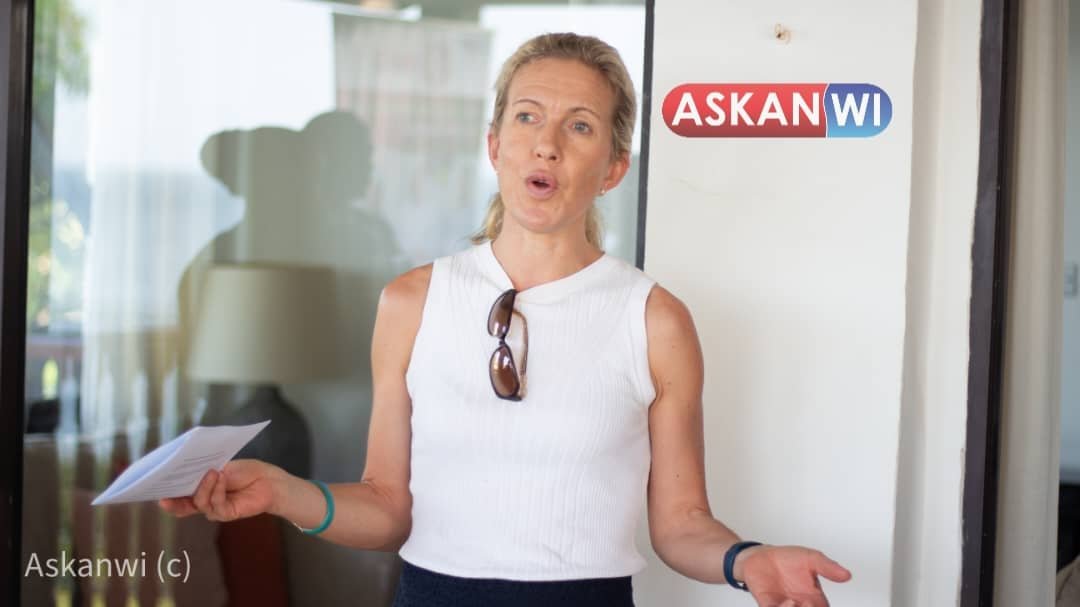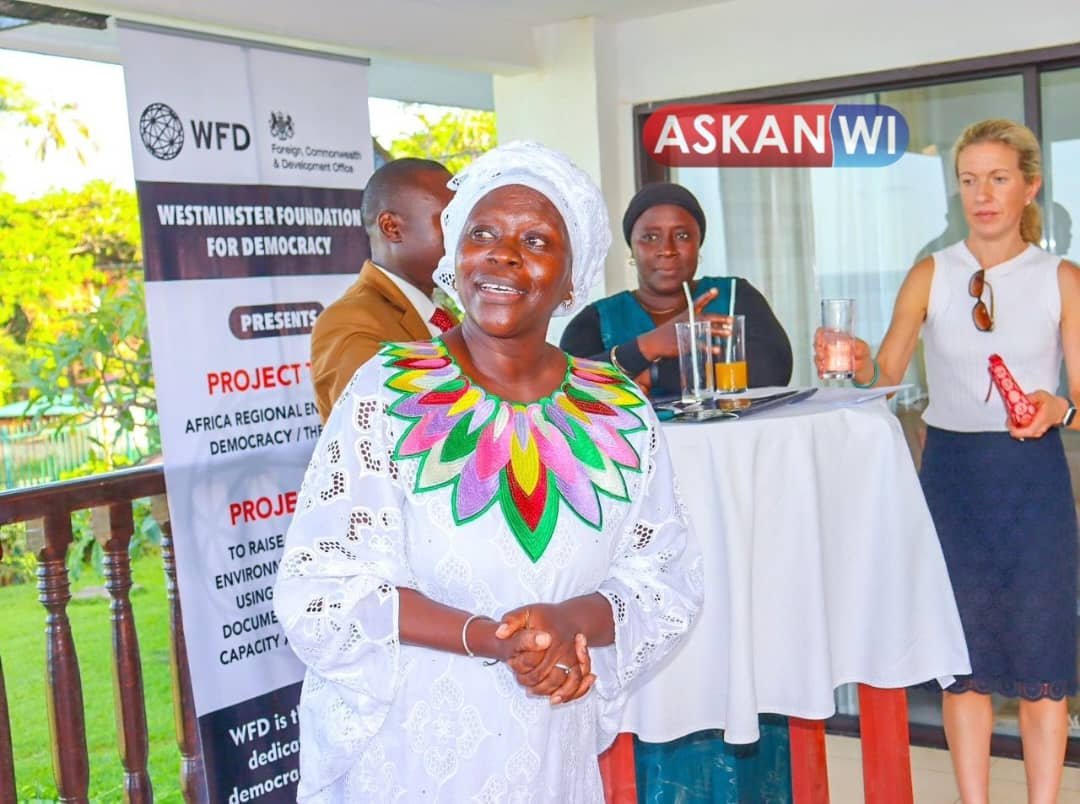Hon Gassama says Environment and Climate Challenges Need Resilience and Foresight
Hon Yaya Gassama © Askanwi
By Fatoumata Jaiteh
In response to the call for climate action, the National Assembly's Select Committee on Environment, Sustainable Development and NGO Affairs, joined the Westminster Foundation for Democracy (WFD) and partners in launching the Environmental Democracy project.
The event which took place on the 3rd of October 2024 at the British High Commissioner's residence at Cape Point, was attended by various stakeholders from Civil Society Organizations, Environmental Advocates, Parliamentarians and the media who will be collaborating on the implementation of the project to address environmental and climate change challenges.
In a statement delivered by the Chair of Parliament’s Environment Committee, Hon. Yaya Gassama, he cited climate change as a global menace that calls for concerted efforts in tackling it's challenges, adding that climate change needs to be handled with resilience and foresight. "In the face of a rapidly warming world, and an increase in environmental uncertainty the need for robust coordinated action has never been more urgent," said Hon Gassama.
He explained that the National Assembly is pivotal in making laws that would safeguard the environment. Parliament’s Environment Committee is the body entrusted with performing oversight and “guiding national efforts to address environmental challenges and also to promote sustainable development,” said Hon Gassama.
The Chair of Parliament’s Environment Committee added that the WFD Environmental Democracy Project will strengthen their capacity as Parliamentarians in making laws that would benefit current and future generations. This "legal framework is essential not only to protect the environment but also to ensure that future generations inherit a sustainable and thriving planet," enthused Hon Gassama.
Image of Ozone Layer © Science Direct
Climate change is a long term shift in temperature and weather patterns in the suns activity or large volcanic eruptions. The United Nations revealed that "human activities have been the main driver of climate change, primarily due to burning fossil fuels like coal and gas … [which] generates greenhouse emissions that act like a blanket wrapped around the Earth, trapping the sun's heat and rising temperatures".
Due to this, since 1800s temperatures have continued to rise as the world continues towards a crusade of industrialization. The UN also notes that “the average temperature of the Earth’s surface is now about 1.2’C warmer than it was in the late 1800s”. In addition to this “the last decade was (2011-2020) was the warmest on record, and each of the last four decades has been warmer than any previous decade since 1850”.
British High Commissioner H.E. Harriet King © Askanwi
During her welcoming remarks, the British High Commissioner to The Gambia, H. E. Harriet King noted that "nature and climate crisis is the most profound universal source of global disorder". To confront this challenge High Commissioner King revealed that the UK is working towards a world free from poverty on a livable planet which includes keeping global temperature increase down to 1.5 degrees Celsius.
This target was set by world leaders during the Paris Agreement in 2016 as a measure to reduce global warming which in turn causes sea level rise as the ice caps melt. As sea levels rise, this in turn causes floods that displaces people from their homes, affecting millions of people residing along coastal settlements. Global CO2 Emissions also cause global warming as they impact the World’s Ozone Layer.
Speaking about meeting this target, Commissioner King noted that the world must "peak Global emissions by 2025 and to reduce emissions by 43 percent by 2030 to protect and restore nature."
WFD The Gambia Coordinator © Madam Tabu Njie Sarr
The United Nations has taken the lead on addressing the environment and climate change through the United Nations Framework Convention on Climate Change (UNFCC). Through this initiative, country’s who have signed up to the Paris Agreement detail how they have taken action to “reduce national emission and adapt to the impacts of climate change” via their Nationally Determined Contributions (NDCs). The Gambia has submitted at least two NDCs in it’s push to address climate change.
Initiators of the Environmental Democracy Project, WFD’s The Gambia Coordinator, Madam Tabu Njie-Sarr revealed that the country is vulnerable from the impacts of climate change. "We are one of the G33 countries, one of the countries that suffer the effects of climate change" said the WFD Country Director.
Speaking on The Gambia's NDC's, Madam Njie Sarr highlighted that the country is yet to fulfill most of its NDCs but this project will go a long way in addressing this issue because it involves the participation of both the government and non government actors.
The project will "assess the Gaps and come up with possible solutions that can help the country to have a firm footing in responding to the UNFCC in our NDCs" which will help in the quest to combat climate change, said the WFD The Gambia Director.




